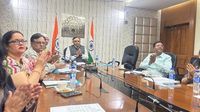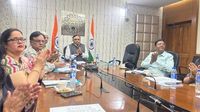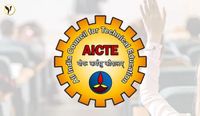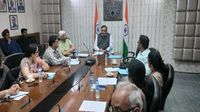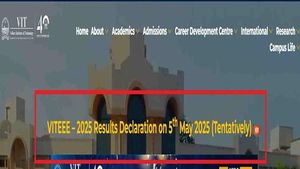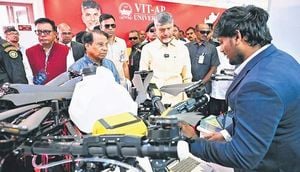The All India Council for Technical Education (AICTE) has launched the second edition of its flagship initiative, AICTE-VAANI (Vibrant Advocacy for Advancement and Nurturing of Indian Languages), aimed at promoting Indian languages in technical education across the nation. On March 19, 2025, AICTE Chairperson Prof. TG Sitharam officially unveiled the expanded program, which represents a significant step towards inclusivity in India’s academic landscape.
Under the new initiative, AICTE will allocate ₹4 crore to fund 200 conferences, seminars, and workshops that will be held in 22 regional languages. This move is intended to ensure that the latest technological advancements are accessible in local languages, fostering better participation and understanding among students and faculties. The scheme also aims to encourage the publication of research papers in regional languages, reinforcing a robust knowledge base within these communities.
The first edition of the VAANI scheme was launched on March 11, 2024, covering 12 languages and focusing on 12 technical fields, but the new edition has expanded the scope significantly. Prof. Sitharam noted, "We have increased our focus from 12 to 22 languages, and the number of technical fields has also grown from 12 to 16, which includes Artificial Intelligence, Data Science, Cybersecurity, and Quantum Technology." This expansion is critical for enhancing accessibility to technical knowledge.
AICTE Vice Chairman Dr. Abhay Jere reiterated the importance of incorporating critical thinking and problem-solving skills into technical education, irrespective of the language of instruction. He views the initiative not merely as a means of language preservation but as an opportunity for students to engage deeply with subjects relevant to contemporary technological advancements.
Each conference will receive financial support of up to ₹2 lakh, contributing to the total funding allocated for the year. Dr. Jere suggested creating a comprehensive repository of all conferences organized under the scheme for future reference and research purposes, adding depth to the discussions held in these regional languages.
The upcoming conferences will cover a wide array of emerging technical fields. The diverse list includes Healthcare Technologies, Environmental Engineering, Hydrogen Energy, Space and Defense, and Agrotech, amongst others. This broadening of topics exemplifies AICTE's commitment to integrating modern technological discussions into local educational environments.
Applications for AICTE-approved institutions interested in organizing events under the VAANI scheme will be open from March 25 to April 24, 2025, via the official AICTE-ATAL portal. Institutions will be selected based on predetermined criteria to ensure quality and relevance in their proposed conferences, workshops, or seminars.
Prof. TG Sitharam emphasized again the transformative nature of the VAANI scheme, stating it's not just about language promotion. "This initiative will enhance grassroots participation in technological advancements and foster collaboration between academic institutions and industries through the medium of regional languages," he said.
As part of this initiative, AICTE's focus on regional languages also aims to preserve India’s rich cultural diversity. Many educators have praised the initiative for its potential to revitalize the academic environment in local contexts. For instance, Prof. Nilanjana Dutta Roy of Techno International New Town shared how they held a workshop entirely in Bengali last January, supported by AICTE funds, which facilitated discussions on AI and Quantum Computing—subjects usually reserved for English-speaking audiences.
Furthermore, the comparison between the first and second editions of VAANI reveals significant developments. The first edition supported 100 conferences, while the latest initiative plans for 200, effectively doubling the engagement opportunities for educational institutions across the region. The initial funding was ₹2 crore, which has now expanded to ₹4 crore, highlighting AICTE's increasing investment in fostering technical education.
In summary, the AICTE-VAANI 2025 scheme represents a critical evolution in India's educational policy concerning language and technology, underscoring the need for diversity and inclusion in science and technology education. AICTE's commitment through this scheme shows that no student should be left behind due to language barriers, and instead, they should be empowered with modern knowledge in their mother tongue.
The broader implication of this venture is not just enhanced educational outcomes; it also reflects a profound respect for India’s linguistic diversity, positioning the nation as a pioneer in adopting multicultural strategies for educational flourishing.
